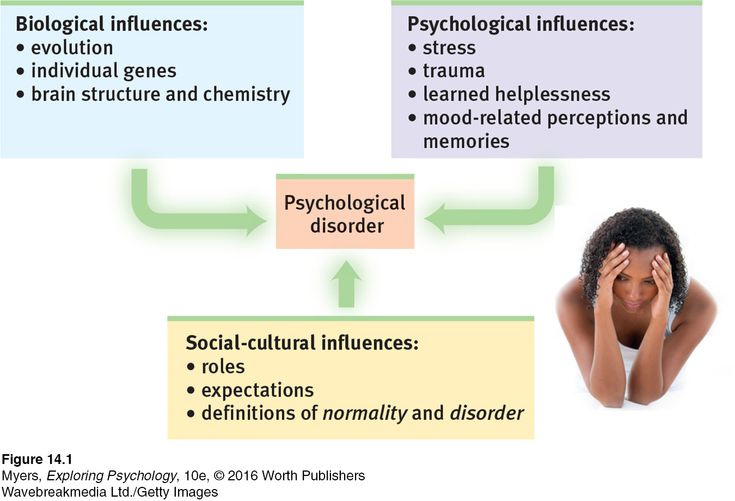5 year old perfectionist
How to deal with a perfectionist child
Child Development
Credit: iStock.com/PeopleImages
If your child is easily frustrated when things don’t go to plan, or they get anxious when they’ve failed at achieving a difficult task, then you might have a young perfectionist on your hands.
While some parents might not see being a perfectionist as a disadvantage, some children are very self-critical and it can be upsetting to see them setting high standards for themselves and watching it interfere with their enjoyment of learning or performing.
Clinical Psychologist Dr Danielle Einstein says parents need to recognise the situations in which their child is being a perfectionist, whether it’s at home, school or preschool.
“Your child might be doing some work in front of you and you can see they’re getting quite upset with themselves when they make a mistake. Or they’re having trouble getting started because they want to have the perfect sentence before they write something, or it might involve artwork or just playing with toys,” Dr Einstein says.
“You’ll be able to tell quite quickly if your child is getting frustrated and sets themselves high standards.”
Perfectionism is related to having very high standards and getting upset with yourself when you don’t meet those standards. Dr Einstein says if you recognise that your child is a perfectionist, it’s crucial to communicate with them so they understand what’s going on.
“The first thing to do is be able to chat to your child about it as you see it happening. Give the feeling a label and then, as a parent you can actually talk about how there’s no such thing as a perfect parent, that you’re not a perfect parent and you make mistakes and that’s okay,” Dr Einstein says.
“The child needs to know that making mistakes is part of life and, as we try to learn new skills, it takes a lot of practice and we make mistakes as we perfect our skills. Making mistakes and practising until we get things right is part of the experience of getting good at things.”
Making mistakes and practising until we get things right is part of the experience of getting good at things.”
Healthy versus unhealthy perfectionism
Psychologist Dr Rebecca Collie, Scientia Fellow and Senior Lecturer in Educational Psychology, UNSW points out the differences between healthy perfectionism and unhealthy perfectionism.
“Healthy perfectionism is when children strive towards feeling pride in what they’re doing in their accomplishments. But unhealthy perfectionism is when kids have very high expectations. They tend to worry about making mistakes and they’re over critical of themselves. So there’s a big difference between healthy perfectionism and unhealthy perfectionism which can be very problematic,” Dr Collins says.
“If your child’s perfectionism is unhealthy, it’s often driven by a fear of failure and these children often tie their sense of self-worth to success. So, when things are going well it’s fine, but when things aren’t going well they can be very disappointed and critical of themselves. ”
”
The child needs to know that making mistakes is part of life and, as we try to learn new skills, it takes a lot of practice and we make mistakes as we perfect our skills. Making mistakes and practising until we get things right is part of the experience of getting good at things.
Dr Danielle Einstein
Stay up to date with the latest news and articles from First Five Years
Subscribe now
First name
Enter your first name
Enter your emailEnter a valid email
When to seek help for your child's perfectionism?
A study into perfectionism and children found a dominant feature of children who are perfectionistic is the distorted and rigid ways in which they tend to think.
The study also revealed perfectionistic children commonly think they must adhere to meeting impossibly high standards. They may overgeneralise when they fail, telling themselves they will ‘never do well.’ They also tend to believe that they should be doing things perfectly so that bad things do not occur and that if they make mistakes the consequences can be dreadful.
So when should parents seek professional help? Dr Einstein says if the child seems to be experiencing depression as a result of their perfectionism, that’s when the parents need to take action.
“If the parent sees that their child is unable to do things because they are stuck with their perfectionism, that’s when it becomes a major problem. Sometimes that actually comes out in the form of procrastination – some perfectionists are so concerned about getting it right they can’t get started,” Dr Einstein says.
“It might not be necessary to take a child who is excessively procrastinating to a psychologist or to label the behaviour, unless you can see that they’re either feeling anxiety, or they’re depressed and it’s messing with their ability to function. But if you feel your child is depressed due to perfectionism, that’s a time to seek help.”
But if you feel your child is depressed due to perfectionism, that’s a time to seek help.”
How parents can help their child
Dr Collie says another way to help your ‘perfectionist child’ is by telling them they’re doing a great job, even if whatever they were attempting wasn’t successful.
“It’s a very complex issue, as it involves a bit of nature versus nurture. What we can do to help kids is by getting them to understand mistakes aren’t a sign of failure. They’re related to learning and improving, and we can use this as a way to get better at things,” Dr Collie says.
“We can also focus on praising young children for their efforts rather than their accomplishments, as this helps them understand that they can control their effort. You can’t always control the outcome, but you can control how hard you work on something.
“We know from the research that healthy perfectionism can be linked to positive outcomes but unhealthy perfectionism, when it’s held down by a fear of failure, can lead to less positive outcomes and that’s when it becomes a problem. ”
”
Dr Collie says if parents are concerned that their child’s perfectionism is interfering with their daily life then that’s a good time to seek professional help.
“If your child is under five, you could start with your local GP but, if the child is in school, it’s a good idea to see the school counsellor at first and take it from there.
“If you feel like your child’s ability to function at home or at day-care, preschool or school, is being affected it might be time to reach out for help and guidance.”
Perfectionists — Child Development and Parent Consultation
Gabriel (6) and I were working on writing letters together. When he couldn’t make his “O” look exactly like mine, he had a total meltdown. The more I tried to tell him what a good job he was doing, the more agitated he became.
When Serena (5) messes something up, her reaction is very disproportionate and she is incredibly hard on herself - saying she will never draw again, tearing up the paper, crying, hitting herself on the head, throwing herself on the floor. We try to model losing/not being perfect and taking it in stride - we emphasize that, but it doesn't seem to help.
We try to model losing/not being perfect and taking it in stride - we emphasize that, but it doesn't seem to help.
Highly sensitive (HS) children have a tendency to be perfectionists. When they can’t do something exactly as their brain is telling them it should be, they experience it as a loss of control which is very uncomfortable and hard to tolerate. Hence, the meltdowns. This can be very frustrating for parents who see the irrationality in their children’s thinking but find that using logic to help them be more self-accepting backfires.
What you can do:
Avoid cheerleading and rushing to problem-solve. "That is a great 'O'!" "But I love your drawing!" "Nobody's perfect. Just try again." These are some of our most common, reflexive responses in these moments. Perfectionist behavior worries us because we see how paralyzing it is to our kids and we want to talk them out of it--to change their feelings and behavior.
 The problem is that when children break down in the face of their perceived failure, they are in a highly emotional, irrational state, so trying to use reason or logic to convince your child to snap out of it or change his mind is rarely useful and can backfire--increasing your child's agitation. HS kids also have super-human radar for sensing when others are trying to control them which leads to defensiveness and digging their heels in more vehemently. And, perhaps most importantly, when you jump to reassure, you invalidate your child's experience--as irrational as his reaction may seem. You can't take away your child's feelings. Your job is to help him look at and make sense of them. That process can only take place once your child is calm and can think clearly. .When children flip their lids and are in "red zone", their brains are flooded with emotion. There is no room to process any information or ideas you want to share and they are not open to problem-solving. So instead, start by.
The problem is that when children break down in the face of their perceived failure, they are in a highly emotional, irrational state, so trying to use reason or logic to convince your child to snap out of it or change his mind is rarely useful and can backfire--increasing your child's agitation. HS kids also have super-human radar for sensing when others are trying to control them which leads to defensiveness and digging their heels in more vehemently. And, perhaps most importantly, when you jump to reassure, you invalidate your child's experience--as irrational as his reaction may seem. You can't take away your child's feelings. Your job is to help him look at and make sense of them. That process can only take place once your child is calm and can think clearly. .When children flip their lids and are in "red zone", their brains are flooded with emotion. There is no room to process any information or ideas you want to share and they are not open to problem-solving. So instead, start by. ..
..Acknowledge your child’s feelings. Mirror your child's feelings back to him. That is what soothes his agitated nervous system and helps him get back to a calmer state: "You don’t like the way the letter you wrote looks. You have a different idea about how it should appear. It feels really uncomfortable and distressing to you when you can’t do something exactly the way you expect or want it to be. I understand.” Helping your child gain insight into what makes him tick—developing this self-awareness— is what makes it possible for him to ultimately rethink his perspective and self-assessment
Help your child “reality test.” When your child is out of red zone and calm, let him know you have some ideas about other ways to think about the situation and ask if he'd like to hear them. (This seemingly minor step of asking for permission versus launching in to share your ideas--which can feel intrusive and overwhelming to HS kids--can have a major, positive impact.
 It makes them feel more in control and open to your input.) When your child shows he's ready to hear what you have to say, share your perspective: “Daddy has been working on his handwriting for over 30 years. That’s 29 more years of practice than you have had since you just started to learn to write last year. I had to work really hard to get good at making letters. Learning anything new means making a lot of mistakes. You have to keep trying until we get good at something. And even then we still make mistakes!" Give examples from your own experience.
It makes them feel more in control and open to your input.) When your child shows he's ready to hear what you have to say, share your perspective: “Daddy has been working on his handwriting for over 30 years. That’s 29 more years of practice than you have had since you just started to learn to write last year. I had to work really hard to get good at making letters. Learning anything new means making a lot of mistakes. You have to keep trying until we get good at something. And even then we still make mistakes!" Give examples from your own experience.Guide your child to think through the outcome of his choices. Think of it as a debrief--a non-judgmental review of the situation. Ask what he thinks will happen if he gives up. What about if he gives it another try? What does he think will help him reach his goal to master whatever skill he is working on? Avoid the temptation to try to make him change his behavior by cajoling, bribing/rewarding or shaming (“Big boys ride two-wheelers”; “You’ll never succeed if you don’t keep trying”.
 ) This just gives children fodder to become more defensive.
) This just gives children fodder to become more defensive. Ask your child how he would like to proceed. “Would you like to keep practicing or do you want to take a break? It's up to you." This sends the message that the control is in his hands which makes it more likely he will persevere, at some point. Forcing the issue often leads to kids becoming defensive and digging in their heels further.
This article is part of a series on understanding and supporting highly sensitive children. You can check out other installments in this series, here.
follow me on instagram
Subscribe to the lerner child development newsletter
Highly Sensitive ChildrenClaire Lerner
0 LikesIf your child is a perfectionist: what to do?
Categories: Parents meeting, Articles
Tags: education, children, psychology, parents, School
What to do?
Do you think perfectionism is a good quality? Perfectionism is terrible: it sucks all the juice out of the child and gives nothing in return, not even the joy of achievement.
You may have heard some parents proudly proclaim, “My son has been working on a chemistry project all night. He loves to perfect everything." But such parents most likely do not understand that perfectionism is a serious psychological problem, not a blessing. nine0019 If you are raising a perfectionist, you probably noticed that it is quite difficult: torn paper all over the room, long evenings over textbooks and notebooks, nervous breakdowns are just a few of the hallmarks in the behavior of a young lover to do everything impeccably.
Perfectionism takes a lot of energy from a child: a breakdown after a sports mistake or a few hours with a smartphone at the ready to take a perfect selfie does not look so harmless. And if you do not try to influence this, then in later life there may be even more problems. nine0003
What does perfectionism bring up in children?
It is wonderful when a child strives for more, but if he expects perfection from himself, he will never be able to enjoy the fruits of his labors.
Perfectionists set themselves unrealistic goals. They then place enormous pressure on their shoulders to achieve those goals. Their thinking can be described by the saying "make or break". If such a child receives 99 points out of 100 on the exam or makes 9 out of 10 successful throws in basketball, then for him it will be a complete failure - the goal was not fulfilled. nine0019 When such children succeed, they cannot enjoy their achievement. They constantly belittle their victories and worry that they will not be able to repeat the high result.
Types of perfectionism
Some researchers believe that a child can be an "adaptive perfectionist" and that unrealistic expectations of themselves can serve them well in life. However, most scientists agree that perfectionism is only harmful.
Scholars identify three distinct types of perfectionism:
*Ego-perfectionists - expect the unreal from themselves;
*Extra perfectionists - set unrealistic standards for others;
*Social perfectionists - believe that others (teacher or parents) set unrealistic goals for him.
All three types are extremely dangerous for a happy and successful life of a child.
Symptoms
Symptoms of this phenomenon may vary, depending on the age of the child and the type of perfectionism. But in general the symptoms are:
* high sensitivity to criticism;
* trouble shutting down because it's constantly "too bad";
* procrastination - avoidance of difficult tasks;
* self-criticism, self-confidence and vulnerability;
* very critical of other people;
* problems with decision making and prioritization;
* prostration and apathy in case of error;
* high alarm level.
Risk factors
Scientists believe there are several factors that can lead to perfectionism in children.
* Biological factors . Research shows that perfectionism is often associated with certain mental disorders, such as obsessive-compulsive disorder or eating disorders. This allows scientists to conclude that perfectionism has biological causes. nine0019 * Influence of parents. Praises like "the smartest kid in the whole school" or "the strongest athlete in the school" can lead the child to learn that making mistakes is bad. The child begins to feel that he needs to succeed at all costs.
* Perfectionist parents. Such parents are much more likely to raise a perfectionist. There may be a genetic explanation for this, or children simply accept the "ideal" behavior of their parents as a role model. nine0019 * School pressure. Children may be afraid that a poor result on the USE or an intermediate test may reduce their chances of getting into a good university. Others try to do well in order to get various scholarships. Academic pressure can make children feel like they have to be perfect in order to achieve something.
Academic pressure can make children feel like they have to be perfect in order to achieve something.
* A fine line between success and failure. The media is constantly painting portraits of the perfect pop stars or athletes. At the same time, the media are capable of destroying any star due to one celebrity mistake. Such experiences convince children that they need to be perfect. nine0019 * Desire to please. Some children want others to admire them, for this, of course, you have to be perfect in everything. Sometimes this can lead to extremely sad consequences.
* Low self-esteem. A child who is dissatisfied with himself may begin to think that he is only his achievement. Perfectionists constantly focus only on their mistakes and belittle their achievements.
* Injury. A traumatic experience can cause a child to feel unloved or unaccepted by society if he is not perfect. nine0019
The dangers of perfectionism
Perfectionism will not lead a child to success. Everything can turn out quite the opposite. Here are a few problems that can happen to a perfectionist child.
Everything can turn out quite the opposite. Here are a few problems that can happen to a perfectionist child.
* Fear of making mistakes prevents them from trying something new.
* Perfectionist children often hide their pain and confusion. They have to look perfect from the outside, so they experience their failures alone.
* Perfectionism can lead to health problems. They are under constant threat of depression, high anxiety and other mental disorders.
* Constant high level of stress. A perfectionist has to constantly avoid making mistakes, so he puts himself under constant pressure to make one. We all know well that stress will not make anyone physically and emotionally healthy.
Dealing with perfectionism
If you notice symptoms of perfectionism in your child, you can help him. Here are a few ways to beat perfectionism.
- Praise more often and not only for achievements.
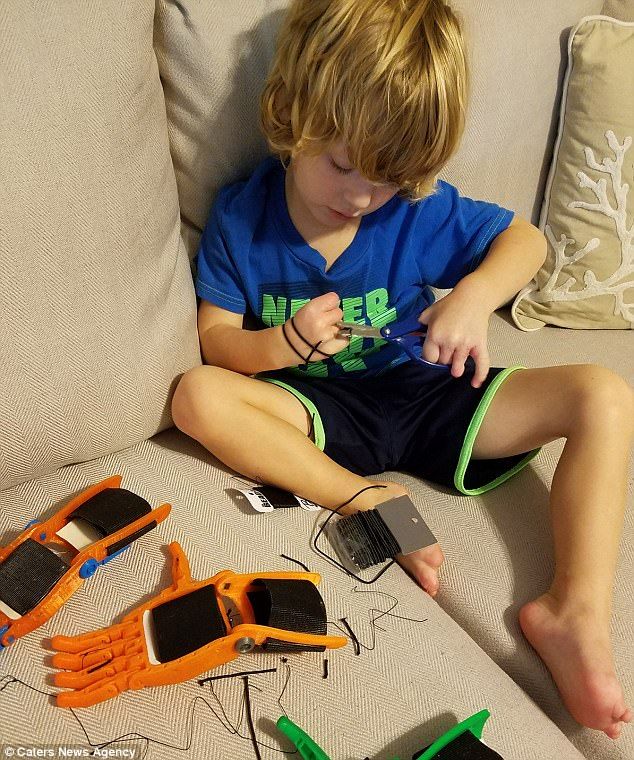 Do not praise the child if he brings home several "fives" in a row, praise him for good work. Also praise your child for being a good person or for treating others. Make it clear to your child that achievement is not the only important thing in life.
Do not praise the child if he brings home several "fives" in a row, praise him for good work. Also praise your child for being a good person or for treating others. Make it clear to your child that achievement is not the only important thing in life. - Tell us about your own mistakes. Let your child see that no one in the world is perfect. Tell us about a time you didn't get a job or failed an exam or test. Focus on what helped you deal with failure. nine0143
- Teach your child how to deal with stress. Mistakes always hurt us, but that doesn't mean they can't be overcome. Tell your child how to deal with disappointment, rejection, or a mistake: talk to a friend, keep a diary, draw. There are many options for venting your negative emotions.
- Teach your child healthy self-talk. Let the child use self-compassion instead of self-criticism. Have a self-talk in front of your child to show him that there are other ways to evaluate yourself besides criticism. Teach phrases like “I forgot to go to the bank today.
 Well, I'll try to get to the bank tomorrow anyway. Or “I forgot about the stove and ruined dinner. I’ll find something else to cook with and this time I’ll be very careful.” nine0143
Well, I'll try to get to the bank tomorrow anyway. Or “I forgot about the stove and ruined dinner. I’ll find something else to cook with and this time I’ll be very careful.” nine0143 - Watch your expectations. The main thing in the treatment of perfectionism is not to put pressure on the child. Set reasonable and realistic goals for him. And review your expectations from time to time: are you expecting too much from your child? If the child is not doing well or is trying to avoid achieving your goals, then you definitely overdid it.
- Teach your child to determine what he can control and what he can't. Does your child want to be the best football player in school, or do they want to do well in all of their final exams? This is good, but explain to him that success does not depend entirely on him, there will always be circumstances that he cannot control. He cannot control the mood and professionalism of the teacher or coach, as well as the talents and work of other students in the school.
 nine0143
nine0143 - Help your child set goals for himself. Talk to your child about his future. If in his goals the need to be perfect slips through, then explain to him the dangers of setting such a task and help him adjust the goal.
- Develop healthy self-esteem in your child. Offer your child activities that he can excel at and that he can enjoy. Volunteering, learning new things, playing musical instruments are some of the great methods of nurturing a child's healthy self-esteem. nine0143
When to seek professional help
Watch carefully so that the child's perfectionism does not bring him social problems. For example, if your child does not communicate with anyone because he wants to get the best grade in the subject, or no one wants to be friends with him, because he cries every time he does not get an "A". In this case, it is worth seeking the help of a professional, because this can harm the future life of the child in society. nine0019 Problems in studies - the second signal to take the child to a psychologist. Example: a child cannot turn in any project or creative work, because they do not correspond to his concept of the ideal.
nine0019 Problems in studies - the second signal to take the child to a psychologist. Example: a child cannot turn in any project or creative work, because they do not correspond to his concept of the ideal.
If you know your child is a perfectionist, talk to their therapist. Tell us about the symptoms of the problem you see and how they affect the child's life. The therapist may refer the child to a specialist to evaluate their condition. A professional will help the child get rid of the annoying striving for perfection. nine0003
Source: verywellfamily
The Perfectionist Paradox – Family Portal of the Omsk Region
The Perfectionist Paradox. The psychologist told how not to get hung up on ideality.
Success is what drives modern society. Most people strive for it, think about it, make efforts to reach that very peak, but it happens that they literally stop one step away from their cherished goal. At the same time, a person knows what needs to be done, all conditions are created for the last breakthrough, and inside there is anxiety: “what if something goes wrong?”, “what if I make a mistake?” or "I can't do it, I can't do it. " This is what perfectionism looks like. Is this quality as useful as it is usually said, says Elnara Kuznetsova, a psychologist at the Moscow Psychological Assistance Service. nine0003
" This is what perfectionism looks like. Is this quality as useful as it is usually said, says Elnara Kuznetsova, a psychologist at the Moscow Psychological Assistance Service. nine0003
What is behind the fear of making a mistake
The word "perfectionism" came to European languages from the Latin perfectus, that is, absolute perfection. A perfectionist is often presented as an overly active person who does everything in the best possible way. In fact, everything is somewhat different. The perfectionist lives in almost everyone, and it is he who most often makes us inactive. There are two types of perfectionists - productive and neurotic. And they have a number of differences. nine0003
Productive perfectionist:
- sets complex ambitious goals,
- takes into account his abilities and limitations,
- knows how to enjoy the process,
- evaluates his successes in a graduated way (there are different options for assessing),
- compares his achievements and failures with past experience,
- feels satisfaction from a job well done,
- perceives failure as a valuable experience.
Neurotic perfectionist:
- often sets difficult, unattainable goals,
- unrealistically high expectations from oneself,
- thinks more about the result,
- evaluation of the result is possible only in two planes (good or bad, there are no intermediate options),
- compares oneself with other more successful people,
- always dissatisfied with the result, work is always not well done,
- failure is perceived as a collapse of self-esteem ("I am a loser").
Neurotic perfectionism is based on the fear of making a mistake, it may be accompanied by thoughts: "If I make a mistake, I will do something wrong, it will be terrible, I will not cope with it." It is important for the psyche to protect oneself, one's self-esteem, therefore, quite unconsciously, a seemingly paradoxical option is chosen: to do nothing. This strategy provides relief, but short-term. A person is engaged only in what brings momentary pleasure; from complex tasks where the risks of making a mistake are high, he refuses. This builds up tension and increases self-criticism. In the long run, this, of course, is very disturbing. nine0003
This builds up tension and increases self-criticism. In the long run, this, of course, is very disturbing. nine0003
When we are inactive, we do not see the result of our work, and accordingly, confidence in ourselves and our strengths decreases, while the fear of making a mistake, of stumbling becomes even more terrifying. It literally paralyzes.
How to make friends with the inner perfectionist?
Practices for overcoming neurotic perfectionism:
- It is important to notice when and how a neurotic perfectionist manifests himself.
- Allow yourself to be wrong. Be prepared for the fact that perhaps at the very beginning this resolution will create even more tension. nine0019 - Think about what really can happen in reality from a mistake and how you can overcome it.
- Get to know the real biography of successful people. Not the one about success, but read about how celebrities got it wrong, what they lost, and what kept them moving forward.
- Discuss with friends and relatives who and how of them were wrong, how they managed to overcome their failures.
- Do it right first (don't get hung up on perfection), and then go back and fix the flaws. So the work will not stall, you will do what is necessary. In the process, new ideas and thoughts may arise - there will be something to discuss with colleagues, friends. Thanks to these reviews, you will finalize the project and correct the errors. nine0019 - Enter the ranking in the assessment of your performance (not unambiguously - "bad" or "good"). Notice the parts of the work that are done well and those that need to be improved. You can introduce a five-point system, like in school. Think about it: is an excellent mark always and in all cases necessary?
One should not evaluate such a quality as perfectionism exclusively negatively. Striving for the best is great, it is important along the way to gradually approach productive perfectionism. This is possible if goals and inner desires are stronger than fears. nine0003
It is natural to be afraid, sometimes our fear signals something important, but sometimes it is wrong.






